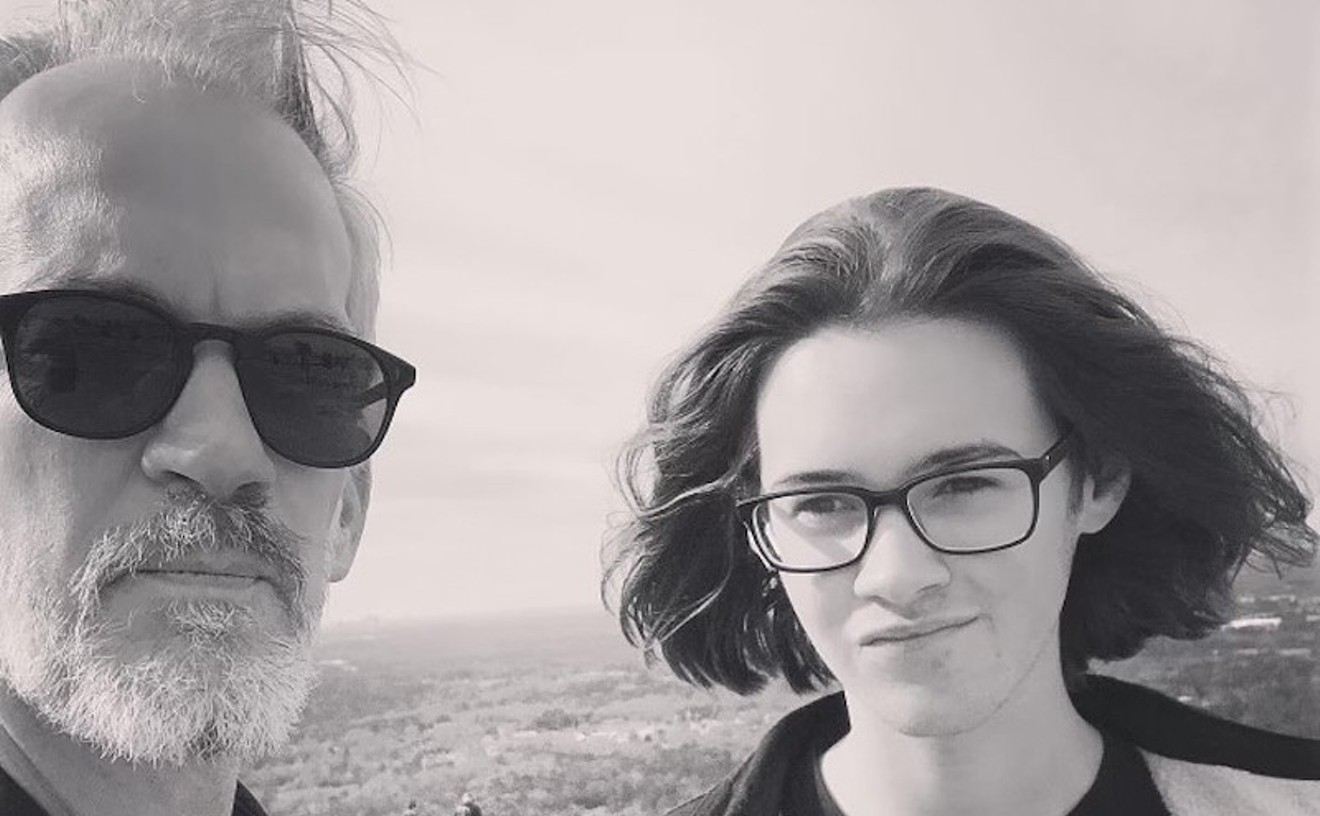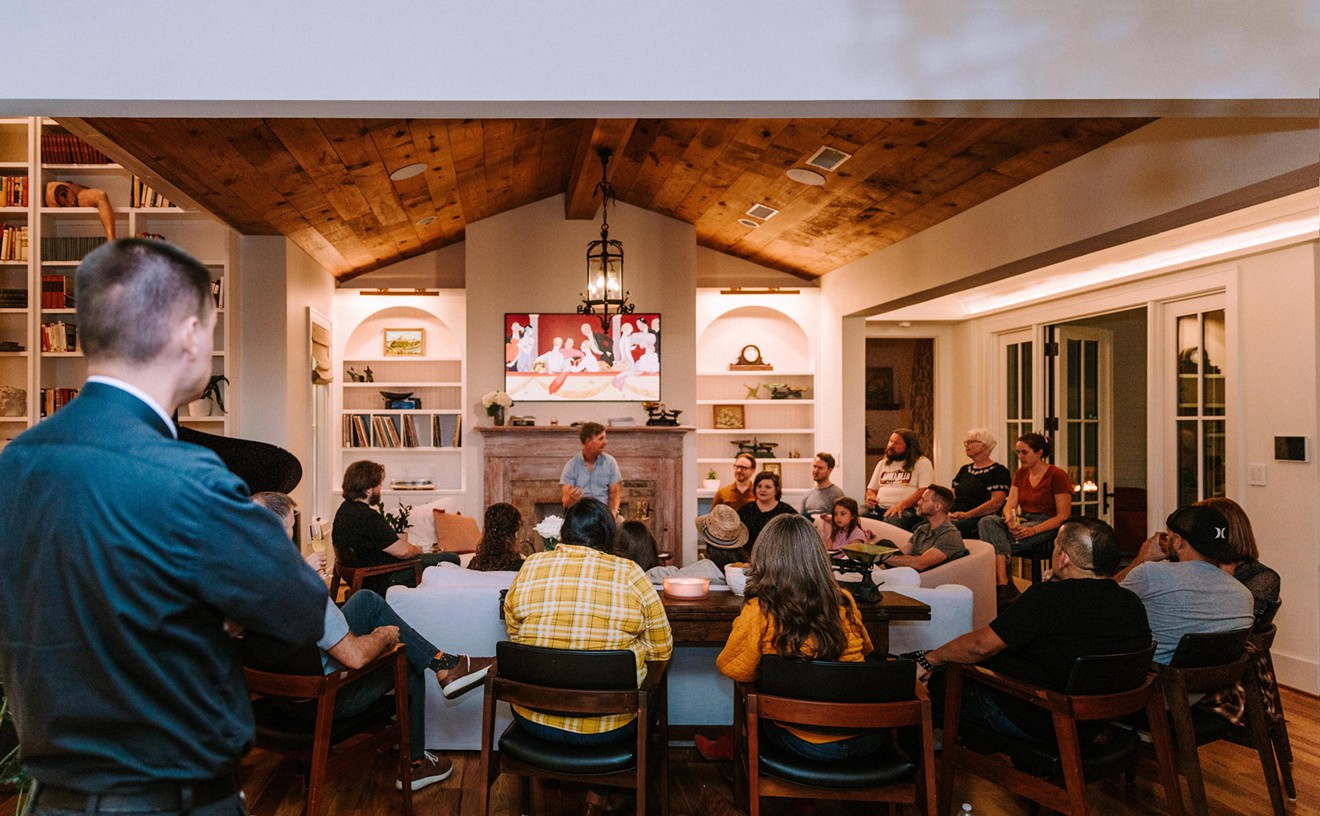Since 1989, TVs across the world have been illuminated with the yellow-skinned Springfieldians and cutting satire of The Simpsons. Series creator Matt Groening can’t even recall off the top of his head how many episodes have aired. “It’s all a blur,” Groening says.
“[Recently] we had our table read for maybe our 605th episode or more, I don’t know we passed 600, and Homer said d’oh in a way I’ve never heard him say it before,” Groening said. “Even after 600-odd episodes, Dan Castellaneta can find new variations on d’oh.”
By now the origins of The Simpsons are well known. A 30-something Groening quickly sketched out America’s most iconic cartoon family in the lobby of producer James L. Brooks’ office, not wanting to lose control over his weekly syndicated cartoon Life in Hell. With a few flicks of his pen, he birthed a global phenomenon.
“From the very beginning, [James L. Brooks] said he wanted the show to go for real emotions and make people forget they're watching a cartoon, and that was a great goal to have in the very beginning,” Groening says. “Now we’ve done so many episodes and some people are going, ‘Oh, it wasn’t the show I loved when I was 12,’ or whatever, and I always think what The Simpsons has evolved into is a forum for different comedy styles. It’s not any one thing, and I think that’s what kept us on the air all these decades.”
Groening also says he benefited from having the right idea at the right time, not to mention the right network to partner with. “No other major network in all these 30 years has done a hard-charging animated show with adult content. They all chicken out; they all smooth out the rough edges. Only Fox has realized and has had the courage of their convictions to have shows like Bob’s Burgers and Family Guy. I’m always amazed that no other network has figured it out.”
A major network executive told Groening that he would never put something as subversive as The Simpsons on the air, even given its massive success. Groening is proud of that, and his reputation for subversiveness is also what originally caught the attention of classmate, fellow cartoonist and creative antithesis Lynda Barry.
“The thing about Matt is from the beginning he always liked butting heads with ... I guess we need an alternative word for assholes ... but that’s exactly what it was. He was totally willing to butt heads with power,” says Barry, who will share the stage with Groening at the Winspear Opera House on Wednesday, June 29, for their touring lecture “Love, Hate & Comics: The Friendship that Would Not Die.”
“One of the great things about doing this is that it’s not a canned performance,” says Groening in reference to the lecture. “We are in the moment, there’s verbal fisticuffs on stage, we give each other a hard time. Both of us try to throw the other one just a little. It’s very funny, and every time I’ve done it with Lynda she’s done things I’ve never seen her do before, and I think I’m pretty much the same way for her … It’s not all light-hearted. There’s some emotional truth in the performance.”
The quintessential odd-couple first met in the '70s at Evergreen State College in Olympia, Washington, a hippie stronghold and state-funded progressive university where grades and required classes were nowhere to be found. Groening says a state legislator once described the school as a “haven for hippies, poets and revolutionaries,” and the school remains a big part of their lives.
Barry fit the mold of the typical Evergreen student and she saw Groening as an unhip oddball in a school filled with free spirits. “My hair was probably the shortest at the time on campus, but that meant it only went down to my collar," Groening says. "I still had long hair, it just didn’t go down to my ass. [Barry] thought I was super straight, but again that was because her boyfriends were truly long-haired hippies.”
Barry lives on a farm in Wisconsin, where she works as a cartoonist, author, playwright and assistant professor of interdisciplinary creativity at the University of Wisconsin-Madison. The waist-high corn and idyllic rural life couldn't be more different from the hustle and bustle of production meetings and read-throughs that make up Groening’s day.
“We look at each other’s lives with [what I always describe] as Edvard Munch’s 'The Scream' face, like there’s no way in hell I’d ever want Matt’s life and he’d never ever want mine, but there are these things that are common to us both.”
The glue that binds them together is primarily their shared experience at Evergreen State, where they both say their careers were formed. “It didn’t occur to us until we started to get older, that we were among the few people we know who were still talking about our alma maters in this way, but they really were our maters, our mothers,” Barry said.
“When I first arrived at Evergreen, suddenly I realized there were no expectations and it was really easy to goof off, and I goofed off for a little bit, and then I went, ‘Wait a minute, who am I hurting? I’m only hurting myself,’ and so in a way because there were no absolute demands, except you had to show up, it just became [about] self-monitoring,” says Groening. “There were kids for whom the school was not appropriate, and they needed to be told what to do, and there were a lot of people like Lynda and me who really thrived with the freedom.”
As the editor of The Cooper Point Journal, the college's newspaper, Groening announced that he would publish anything people sent in. Barry says she took this as a challenge and sent in surreal cartoons such as one that showed spatulas singing “I Put a Spell on You” as they fried eggs, and letters to the editor complaining about childhood misgivings. Groening published it all.
“From the beginning there was this very friendly, antagonistic relationship that continues constantly,” Barry says. “That’s all we do, is give each other shit. It’s our favorite thing in the world.”
The biggest effect the school had on Barry and Groening came in the form of their respective favorite professors, Marilyn Frasca and Mark Levinsky. “I know there’s a lot of anxiety for students looking to make sure they go to the right college. To me what you have to do is, whatever college you’re at, you have to find out the teachers that are truly excellent and inspiring,” Groening said. These professors asked two questions that changed Barry's and Groening's lives, and by extension the entire world.
Frasca's question that sent Barry on a lifelong quest was, “What is an image?" Barry has continued to search for the meaning of an image in her long-running cartoon, Ernie Pook's Comeek (discontinued in 2008), her novels and in the classroom, where she says she uses techniques learned at Evergreen to teach everyone from medium-security prison inmates to biology students how to delve into the core of what makes us creative, through drawing comics and writing stories.
Groening's inspiration was framed differently. Levinsky told him, “You do what you do adequately well. Now you just have to ask: Is it worth doing?” Groening kept this advice in mind when he moved to Los Angeles in 1977 and starting self-publishing his cartoon Life in Hell (discontinued in 2012).
“It was sort of my ranting about how much I hated LA and people didn’t really like it,” Groening said. “Then I took the same characters, which were little bunny rabbits, and I made them pathetic and the objects of ridicule and torment and heartbreak, and then suddenly everyone liked it. And I said, 'Ah, everyone likes feeling superior to the characters you put through their paces,' and that’s been the story of everything else I’ve done since.
“I mean, Homer Simpson is a guy who is optimistic in the face of life kicking him in the ass every single day. Bart Simpson is a kid who’s a brat but also a kid who’s been programmed for failure by a pretty sad school system, and it goes on and on basically with every character in the show. And I think that’s part of the reason why the show is good, the other reasons being we have brilliant writers, animators who are having such a fantastic time doing their work and actors who can’t be surpassed.”
Hear Matt Groening and Lynda Barry speak Wednesday, June 29, at the Winspear Opera House, 2403 Flora St. Tickets are $25 to $75 at attpac.org.
[
{
"name": "Air - MediumRectangle - Inline Content - Mobile Display Size",
"component": "18855504",
"insertPoint": "2",
"requiredCountToDisplay": "2",
"watchElement": ".fdn-content-body",
"astAdList": [
{
"adType": "rectangle",
"displayTargets": "mobile"
}
]
},{
"name": "Editor Picks",
"component": "17105533",
"insertPoint": "4",
"requiredCountToDisplay": "1",
"watchElement": ".fdn-content-body",
"astAdList": [
{
"adType": "rectangle",
"displayTargets": "desktop|tablet"
},{
"adType": "rectangle",
"displayTargets": "desktop|tablet|mobile"
}
]
},{
"name": "Inline Links",
"component": "18349797",
"insertPoint": "8th",
"startingPoint": 8,
"requiredCountToDisplay": "7",
"maxInsertions": 25
},{
"name": "Air - MediumRectangle - Combo - Inline Content",
"component": "17105532",
"insertPoint": "8th",
"startingPoint": 8,
"requiredCountToDisplay": "7",
"maxInsertions": 25,
"watchElement": ".fdn-content-body",
"astAdList": [
{
"adType": "rectangle",
"displayTargets": "desktop|tablet"
},{
"adType": "rectangle",
"displayTargets": "desktop|tablet|mobile"
}
]
},{
"name": "Inline Links",
"component": "18349797",
"insertPoint": "8th",
"startingPoint": 12,
"requiredCountToDisplay": "11",
"maxInsertions": 25
},{
"name": "Air - Leaderboard Tower - Combo - Inline Content",
"component": "17105535",
"insertPoint": "8th",
"startingPoint": 12,
"requiredCountToDisplay": "11",
"maxInsertions": 25,
"watchElement": ".fdn-content-body",
"astAdList": [
{
"adType": "leaderboardInlineContent",
"displayTargets": "desktop|tablet"
},{
"adType": "tower",
"displayTargets": "mobile"
}
]
}
]











